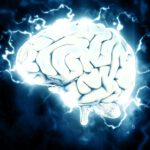If Isaac Lidsky had not gone blind by the age of 25, would he have graduated from Harvard Law School magna cum laude, or clerked for two Supreme Court Justices, or created a technology company worth hundreds of millions of dollars? It is impossible to say. But it is difficult to imagine his life being any better with the supposed gift of sight. Indeed Lidsky says losing his sight was the true gift he received in life. Why? Because it showed him how literally everyone creates their own reality — even seeing the world, says Lidsky, is an act of creation. Once you learn that reality is yours to create, you will only want to create a better one for yourself.
Isaac Lidsky is the author of Eyes Wide Open: Overcoming Obstacles and Recognizing Opportunities in a World That Can’t See Clearly

Transcript: I lost my site progressively over time; my photoreceptor cells of my retina kind of ceased to function.
So if you picture like a Jumbotron screen at an arena, and imagine the bulbs on that screen kind of slowly and randomly break over time, that’s what happened to me. So at first maybe you don’t even notice it, then maybe a gets a little annoying. Eventually you have some issues sort of making out the image.
For me sight became this sort of bizarre experience where objects would appear and then morph into other objects and then disappear, kind of depending on what information I had or what kind of clues I had. It was this conscious, arduous process to see.
What was amazing is, given that experience, I literally saw firsthand how powerful our minds are to create the reality we experience, to create this immersive experience of sight, for example, which I always thought was objective and true and not much to it.
More on the book below
Fear has a tendency to give us tunnel vision—we fill the unknown with our worst imaginings and cling to what’s familiar. But when confronted with new challenges, we need to think more broadly and adapt. When Isaac Lidsky learned that he was beginning to go blind at age thirteen, eventually losing his sight entirely by the time he was twenty-five, he initially thought that blindness would mean an end to his early success and his hopes for the future. Paradoxically, losing his sight gave him the vision to take responsibility for his reality and thrive. Lidsky graduated from Harvard College at age nineteen, served as a Supreme Court law clerk, fathered four children, and turned a failing construction subcontractor into a highly profitable business.
Whether we’re blind or not, our vision is limited by our past experiences, biases, and emotions. Lidsky shows us how we can overcome paralyzing fears, avoid falling prey to our own assumptions and faulty leaps of logic, silence our inner critic, harness our strength, and live with open hearts and minds. In sharing his hard-won insights, Lidsky shows us how we too can confront life’s trials with initiative, humor, and grace.
Eyes Wide Open: Overcoming Obstacles and Recognizing Opportunities in a World That Can’t See Clearly











